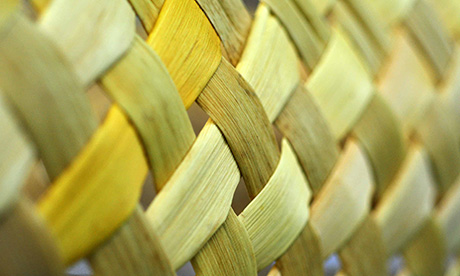Te Whāriki is a contemporary response to the need to reform the institutional Church in Aotearoa.
“It is an urgent task,” the founding group says.
“Although Pope Francis’ 2023 synod holds some hope for nurturing a church that is responsive to the needs of all, we don’t feel confident that the people can get the quality of inclusion and participation within a hierarchical power structure such as the institutional church.”
The work of a group of laypeople, Te Whāriki’s purpose “is to reflect on the interconnectedness of each strand of church and society with the ecological crisis which highlights the ever more craven workings of western capitalism,” they say.
“We have observed the widespread disillusionment and dissatisfaction with the institutional Church. We have also realised that many feel uncertain about how to respond to this situation.
“We think that the voice of the institutional Church has been silent on two of the most vital issues concerning life in Aotearoa.
“One concern ending colonisation and the other the planetary crisis. As the institutional Church prioritises its own interests and survival first and foremost, it is no wonder that we have come to somewhat of an impasse today.”
Te Whāriki (a woven mat) is intended to empower participants to make the necessary analysis and change that will lead to a different model of Church in their communities and a different experience of Church throughout Aotearoa.
The new vision has seven key features:
- Connection and interconnectedness. These become critical features of the new model’s relationship foci
- The relationships between Tangata whenua and Tangata Tiri; (as a consequence of Te Tiriti o Waitangi)
- Te Reo Māori and English are used extensively across the Whāriki to ensure clarity of understanding
- The key themes (making up the WEFT) are Mana Motuhake/Ending Colonisation; Papatūānuku/Care of the Earth; and Whakawhanaungatanga/Being Community
- The key questions that run across each of the themes (making up the WARP) relate to identity – who are we in relation to the theme, culture – what are our values, and action – what is our mission that follows from this?)
- The intertwining of the weaver’s warp and weft creates a robust and stable platform for engaging people and ideas. This enables the group to work positively with worldview difference and diversity rather than avoid it
- It is open-ended – more strands can be added
While the group is strongly supportive of Judeo-Christian values, it says it also wants to propose a different way “the people of Aotearoa” can work as Church.
Te Whāriki has three workstreams where members say we need to focus our energy for change: they see them as being critical to the way we plan and work together as Church.
- Anton Spelman +64 21 233 6309 antonforbespelman@gmail.com
- Cecily McNeill +64 21 235 6996 cecilymcneill@icloud.com
- Mary Thorne +64 21 024 11653 mary.thorne@gmail.com
Source
- Supplied
News category: New Zealand, Palmerston.




